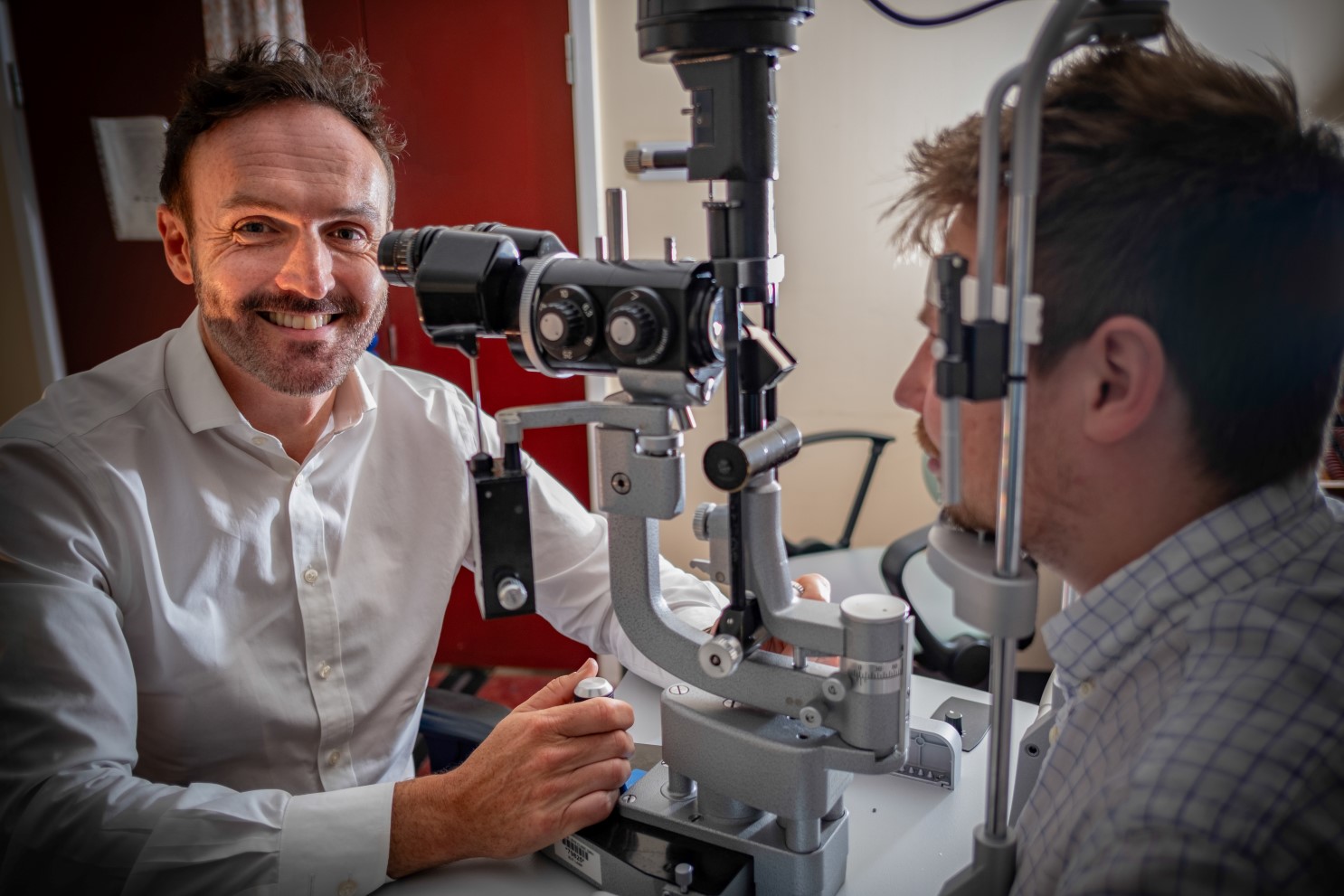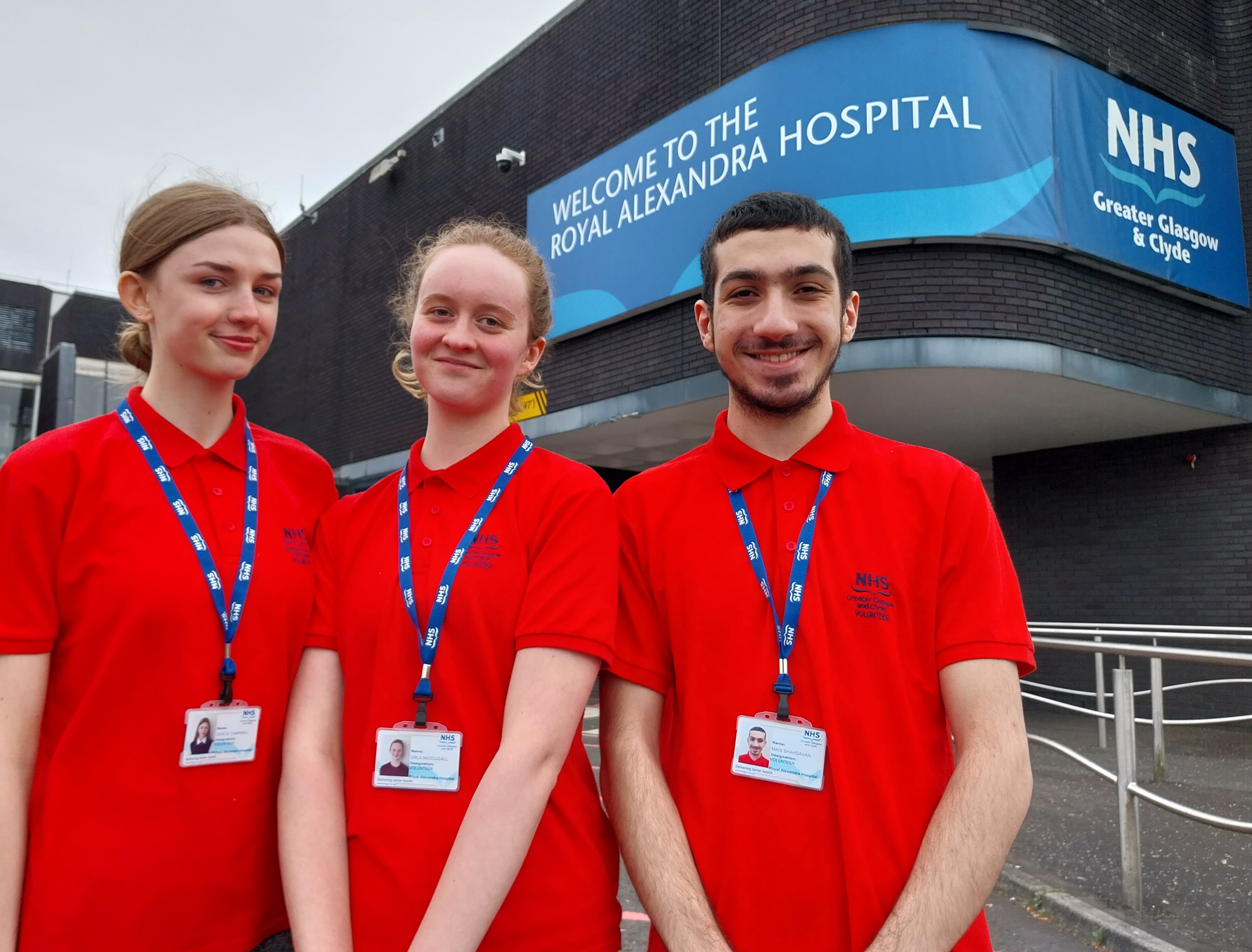Previous
General practitioner
After you graduate from medical school, you’ll need to complete a 2-year postgraduate foundation training programme. You can then apply for specialty training to become a consultant ophthalmologist in the NHS.
Ophthalmologists are doctors who use their medical and surgical skills to diagnose, treat, and prevent eye health or vision problems. These include:
Some ophthalmologists are involved in researching the causes of eye diseases and vision disorders and designing new treatments.

To get into medical school, useful school subjects include:
Speak to your guidance teacher or careers adviser about subjects offered at your school. You should also contact medical schools to learn more about their entry requirements.
Reach is a national project that supports senior school pupils from non-traditional backgrounds who want to study medicine. Universities offer on-campus events to help you gain insight into their undergraduate degree programme. You can also access the following:

You may find it helpful to get some healthcare experience by doing a work placement or volunteering. You’ll get training, increase your knowledge, and learn new skills. This could help you when applying to medical school or for medical training in NHSScotland.
There are 5 universities where you can study medicine in Scotland:
If you’re at school, thinking about changing careers or returning to education as an adult learner, there are many different routes into medical school.
Whichever route you choose, you’ll need to sit the University Clinical Aptitude Test (UCAT). Medical schools use this test and UCAS applications, academic qualifications, and interviews to select applicants for their degree programmes.
Find out more about the UCAT computer-based admissions test.
To become an ophthalmologist, you’ll need to complete a degree in medicine (MBChB or MBBS) at SCQF level 10. Undergraduate degree programmes take 4 to 6 years to complete, studying full-time.
You should contact each medical school to find out about specific entry requirements.
At medical school, you’ll have lectures, tutorials, and simulation-based learning where you’ll do the following:
You’ll also have clinical placements to help you get experience in a wide range of clinical areas, such as:
Search for undergraduate medical degree programmes on My World of Work.
Are you a school leaver? Maybe you're an adult learner who doesn't have the qualifications needed for medical school. Don't worry, access routes to medical education are available!
There are also programmes for graduates with a biological science or healthcare-related honours degree at SCQF level 10.
Widening participation supports adult learners who want to go to university. If you’re an adult with few or no qualifications, you could get into higher education through the Scottish Wider Access Programme (SWAP).
Many universities also provide access programmes to help you get the entry qualifications you need to study medicine.
If you already have an honours degree at SCQF level 10, you can choose this route to study medicine. Some universities offer an accelerated 4-year medical graduate entry programme. To apply, you must meet the academic and non-academic requirements set out by the universities.
You should contact each medical school to find out about their graduate entry programme requirements.
When you graduate from medical school, you’ll need to apply to the General Medical Council (GMC) for provisional registration with a licence to practise. This will allow you to take the next step in your medical training and join a foundation programme.
Find out more about provisional registration.
A foundation programme is the first step in your postgraduate training after you graduate from medical school. You’ll also learn the skills you’ll need to deliver safe and effective person-centred care.
The Scottish Foundation School’s 2-year work-based training programme offers experience in a range of specialties and geographic locations. When you have a place on a foundation programme, you must apply for provisional registration with the GMC.
In your first year as a foundation doctor in training, you’ll develop the knowledge, skills, and competencies you gained in medical school. When you successfully complete your F1 year, you’ll be issued a Foundation Year 1 Certificate of Completion document. The Scottish Foundation School will send a certificate of completion to the GMC so you can apply for full registration. You’ll also progress to the second year of the foundation programme.
During your F2 year, you’ll continue to develop your clinical and professional knowledge. This will prepare you for the next stage of your medical training.
At the end of your F2 year, you’ll be issued a Foundation Programme Certificate of Completion (FPCC), ready to start specialty training.
Find out more about foundation training in Scotland.
Ophthalmic Specialist Training (OST) is a 7-year surgical programme you must complete to become an ophthalmologist. As a specialty doctor in training, you’ll see a diverse range of patients of all ages with eye diseases, injuries or trauma, and other vision disorders.
You’ll also be supported by practising ophthalmology consultants as you learn clinical procedures, surgical skills, and micro-surgical techniques.
All doctors in training receive an annual review towards the end of their training year. The Annual Review of Competence Progression (ARCP) is used to:
A panel of senior doctors and medical educators decides ARCP outcomes. They will determine if you’re ready to progress to the next step in your training.
Find out more about hospital specialty training in Scotland.
You must take The Royal College of Ophthalmologists (RCOphth) exams during the OST programme. These exams evaluate your practical skills and knowledge of ophthalmology. When you successfully pass all 4 exams, you can become a Fellow of The Royal College of Ophthalmologists (FRCOphth).
Discover more about The Royal College of Ophthalmologists.
You’ll be issued a Certificate of Completion of Training (CCT) when you complete speciality training. You can then join the GMC Specialist Register and apply for consultant ophthalmologist vacancies in the NHS.
As an ophthalmologist, you’ll carry out clinical assessments and request appropriate investigations to make a diagnosis. You’ll then manage a person’s clinical care, which could include complex eye surgery or prescribing medication to improve their eye health.
Your main tasks could include:
Ophthalmologists need these skills:
You could work with:
You could work in:
As a consultant ophthalmologist, you’re expected to engage in continuous professional development (CPD) activities to keep your knowledge and skills up to date.
The Royal College of Ophthalmologists (RCOphth) offers seminars, webinars, and surgical skills courses to support your professional development.
Find out more about the RCOphth CPD programme.
All doctors are legally required to revalidate to show that their knowledge and skills are up to date and that they are fit to practise. You’ll need to revalidate every 5 years to maintain your registration with the GMC.
Learn more about the revalidation process for doctors in the UK.
You may choose to be a consultant ophthalmologist throughout your medical career. You’ll keep up to date through CDP activities. Extra courses and workplace learning could lead to career progression to a senior consultant or a specialist in areas such as retinal disease or oculoplastic surgery.
Some ophthalmologists take up teaching and research posts in the NHS, higher education, or the private sector.
You can join the following organisations as a medical student or GMC-registered doctor:
To practise as a consultant ophthalmologist in the NHS, you’ll need a licence to practise in the UK. You must also be on the General Medical Council’s Specialist Register.

What’s it really like to work in the NHS? Discover the pathways that people like you took to a career in health.
View case studies
Are you interested in a career in the NHS? Check out our career help for young people!
Find out more